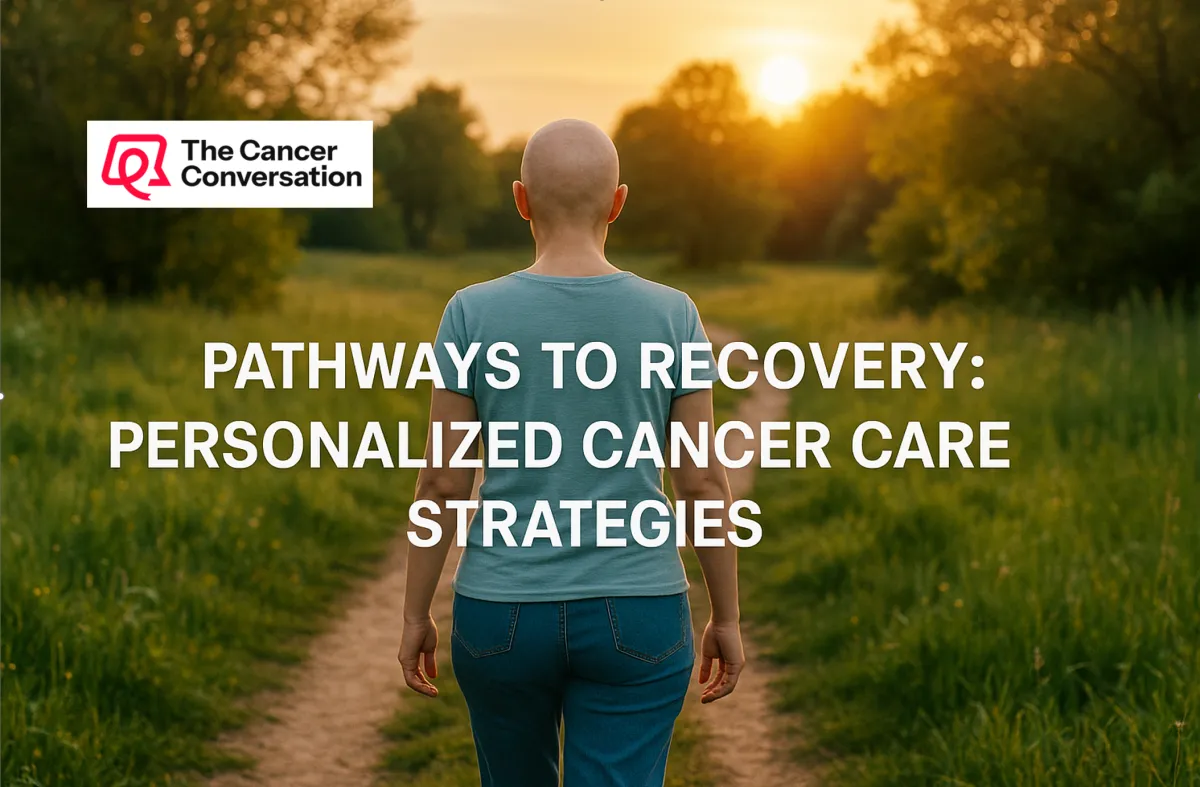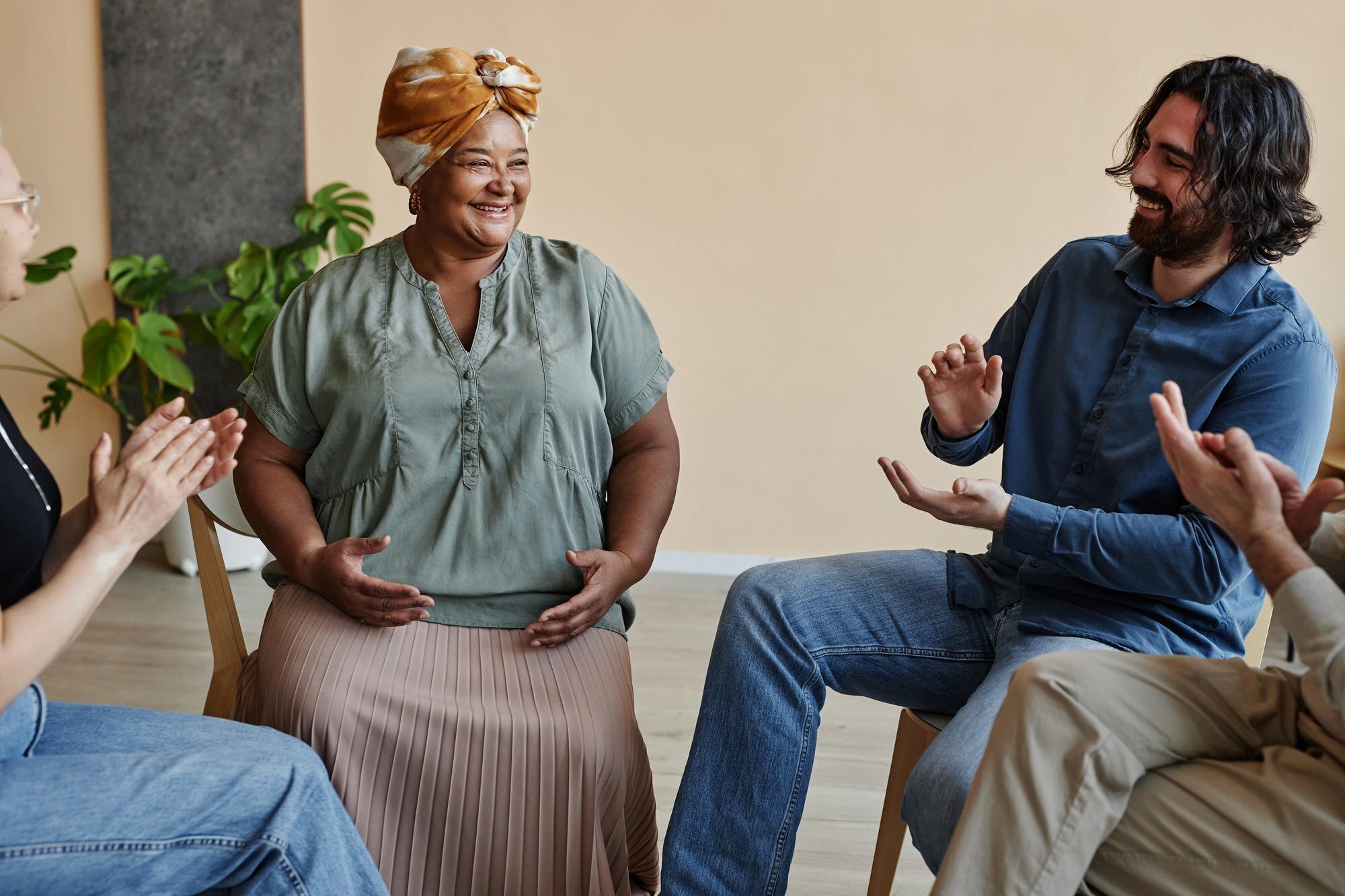
Pathways to Recovery: Personalized Cancer Care Strategies
Facing a cancer diagnosis can feel overwhelming, but personalized cancer care offers a beacon of hope and empowerment. By integrating holistic cancer treatment with conventional methods, patients can embark on a path that respects their individual needs and promotes true healing. Our approach combines the best of both worlds, tapping into mind-body wellness to enhance cancer recovery and support resilience in the face of challenges. With our 12-Step Cancer Recovery Program and Mind-Body Cancer Therapy, you can feel confident in taking control of your health journey. Join our compassionate community and learn how these integrative treatments can pave your pathway to recovery. 🌿💪
Personalized Cancer Care Approaches

Personalized cancer care is crucial for addressing the unique needs of each patient. By tailoring treatments, care providers can offer more effective solutions that blend holistic and conventional methods. This approach not only enhances the efficacy of treatments but also caters to the emotional and physical well-being of individuals.
Integrating Holistic and Conventional Methods
Integrating holistic and conventional treatments allows for a comprehensive approach to cancer care. Holistic treatments focus on the whole person, addressing emotional, spiritual, and physical well-being. In contrast, conventional treatments like chemotherapy are designed to target cancer cells directly.
Holistic approaches may include acupuncture, meditation, and dietary adjustments. These methods can enhance the effectiveness of conventional treatments by reducing side effects and improving overall quality of life. Research from PMC supports this synergistic approach, highlighting improved outcomes for patients.
Combining these methods offers a pathway to not only treat the disease but also support the patient’s mental and emotional health. As ACCC notes, personalized strategies ensure that care is equitable and accessible to all, regardless of background.
Benefits of Individualized Treatment Plans
Individualized treatment plans can significantly impact cancer recovery. By focusing on the specific needs and conditions of a patient, these plans provide targeted therapy that enhances results.
Assessment: A comprehensive evaluation of the patient's medical history, lifestyle, and preferences.
Customization: Combining conventional and holistic treatments to address specific needs.
Monitoring: Regular follow-ups to adjust treatment plans as needed.
Studies, like those in ACS Journals, have shown that personalized plans increase patient satisfaction and improve recovery rates. This approach empowers individuals to take control of their health journey, fostering resilience and a positive outlook.
Mind-Body Wellness in Cancer Recovery

The mind-body connection is a powerful tool in cancer recovery. By focusing on emotional and psychological health, patients can enhance their physical healing. Mind-body wellness practices support this connection, offering techniques that improve resilience and emotional strength.
Harnessing the Power of Mind-Body Connection
The mind-body connection plays a crucial role in healing. Mind-body practices like mindfulness, yoga, and relaxation techniques can positively influence the body's response to cancer treatment.
These practices can lead to reduced stress levels and improved immune function. According to research from Allstate, engaging in mind-body practices can help patients manage pain and improve their quality of life.
Implementing these techniques in daily routines can empower patients, providing them with tools to manage their health proactively. By fostering a positive mindset, patients can navigate their recovery journey with greater ease and hope.
Techniques to Support Emotional Resilience
Emotional resilience is key to enduring the challenges of cancer treatment. Techniques to bolster emotional strength include:
Meditation: Regular practice can reduce anxiety and promote relaxation.
Cognitive Behavioral Therapy (CBT): Helps reframe negative thoughts and improve mental health.
Expressive Arts: Engage in creative activities to process emotions.
Real-world examples highlight the benefits of these approaches. Patients who participate in these activities often report feeling more in control and less overwhelmed by their diagnosis. By prioritizing emotional resilience, individuals can better cope with the demands of cancer treatment.
Programs for Healing and Support

Cancer recovery is a journey requiring comprehensive support and guidance. Programs like the 12-Step Cancer Recovery Program and Mind-Body Cancer Therapy offer structured pathways to aid healing, providing patients with the tools and community they need.
The 12-Step Cancer Recovery Program
The 12-Step Cancer Recovery Program provides a structured framework for healing. This program is designed to support patients through every stage of their journey.
Key components of the program include:
Education: Understanding the disease and treatment options.
Support Groups: Connecting with others facing similar challenges.
Holistic Practices: Incorporating activities like yoga and meditation.
Participants often find that the program not only aids in physical recovery but also boosts emotional well-being. The PMC underscores the importance of such comprehensive approaches, highlighting their role in enhancing overall recovery outcomes.
Mind-Body Cancer Therapy Benefits
Mind-Body Cancer Therapy offers profound benefits for patients. By integrating mental and physical care, this therapy supports holistic healing and resilience.
Benefits of this approach include improved stress management, reduced anxiety, and enhanced coping skills. Patients often experience a greater sense of empowerment, as they learn to harness their inner strengths.
Case studies reveal that those who engage in mind-body therapy report higher levels of satisfaction and improved quality of life. These insights, supported by ACS Journals, emphasize the value of combining traditional and innovative therapies for optimal care.
Personalized cancer care, with its holistic and conventional methods, offers a meaningful path to recovery. By engaging in these programs and practices, individuals can take proactive steps toward healing and resilience. 🌿💪








